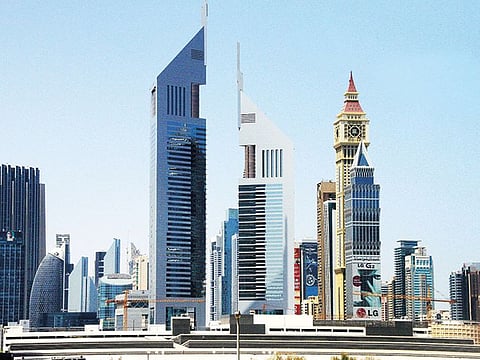Doomsday scenarios for Gulf economies will not come to pass
But pandemic’s fallout will sharpen focus on urgently needed labour market reforms

Whenever oil prices collapse, spite campaigns are launched about an imminent collapse of Gulf economies, particularly that of the UAE and Saudi Arabia. Those behind these campaigns call on all to prepare the stage to celebrate such a spectacular collapse.
Similar campaigns were carried out in 1986, 1998 and 2014 – and during these years, we told them: “Be reassured, the economies of GCC will not collapse.”
However, they refused to believe the GCC economies can withstand such external pressures, and intensified their media campaigns to distort facts and hoping many would respond from within these countries.
With the collapse in oil prices due to the coronavirus pandemic, the nature of such malicious messaging has intensified. As usual, using social media platforms and global media platforms. For example, David Fickling said in a Bloomberg column ‘The decline and fall of the Gulf’s oil empires is looming’.
Mr. Fickling and Bloomberg, thank you for your attention, but we can assure you that we will not collapse. In return, we advise you to take care of your countries, which suffer more than the GCC.
Undoubtedly, the current situation of the global economy is serious and different in intensity from previous crises. No one disputes it and no one is trying to belittle its consequences.
But there are two important questions - why will GCC economies not collapse? And second, what is the Gulf’s situation likely to be in the midst of a severe global recession?
Withstand it all
The GCC economies will not collapse for several reasons. First, they established strong financial reserves between 2004-14, with GCC sovereign funds among the world’s top seven.
Vital financial reforms were also carried out. And now, spending is being revised and rationalized, while the financial response builds on previous experiences.
The Gulf nations have learnt from the previous crises on how to deal with the decline in oil prices, and as the saying goes, “What does not kill you makes you stronger”.
Same for everyone
Our situation is no different from the situation of many countries suffering from economic closures caused by the pandemic. This is simply because GCC countries are an active part of the overlapping global economy.
As is the case for all countries, the GCC economies will suffer from the recession and declining GDP. Some companies will go bankrupt and unemployment rates will increase.
These are normal in such conditions, but the situation in the GCC is relatively better due to the measures taken to support the private sector and provide support to financial institutions.
Reaching out
This is underscored by the Gulf’s generosity in supporting other countries. The UAE has provided medical assistance to 40 countries in Europe, Asia, Africa and the Americas over the past two months. How would a country, purportedly suffering from economic collapse, provide such support? Does the campaign machine have an answer and solution to this equation!
The current crisis seems to be a blessing in disguise. It has opened the eyes of GCC countries to issues that need to be resolved in the post-coronavirus period.
They need to conduct more financial reforms and diversity. Most important is the need to reconsider the labour market- an alarming issue that has yet to be put on the agenda for discussion.
A large workforce of 2million to 3 million illegal workers are in the GCC. This is in addition to a lack of control over the labour market, which has cost the GCC a lot during the pandemic.
These measures will contribute to reducing the transfer of funds from the GCC countries, which reached astronomical $120 billion in 2018, according to the Arab Monetary Fund. However, the GCC countries will continue to be in dire need of foreign labour as well as highly skilled and experienced manpower.
In the meantime, the labour market needs to be regulated for the benefit of the GCC countries and foreign workers alike.
The ongoing and future rescue operation is a collective responsibility that requires the cooperation of all governments and individuals. They will have to accept painful austerity measures until the crisis ends and economic activities return to normal.
- Mohammed Al Asoomi is a specialist on energy and Gulf economic affairs.



